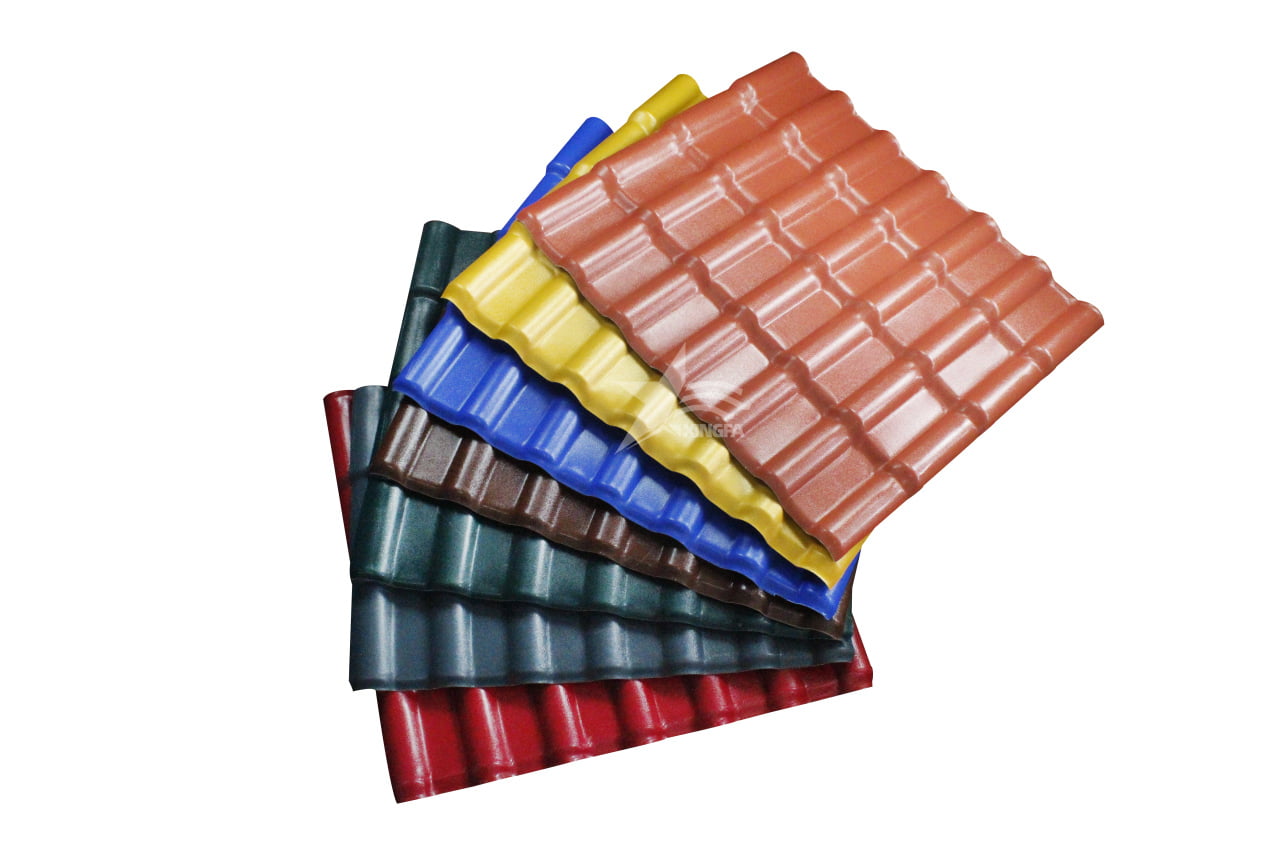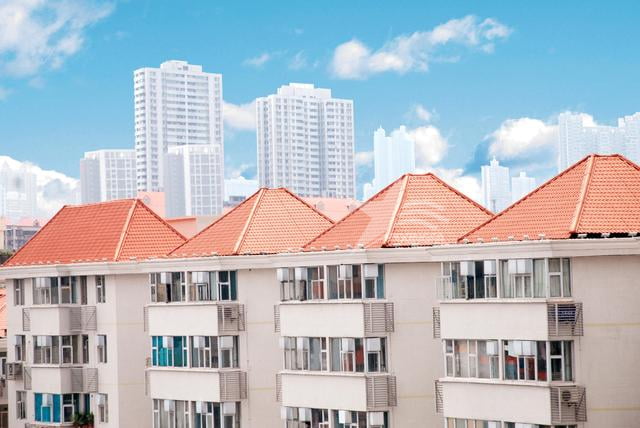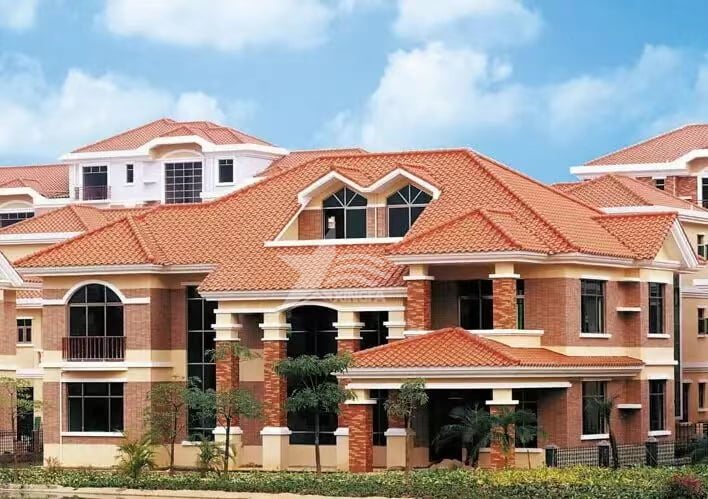The advantages of synthetic resin tiles are as follows:
1. Lightweight but heavy-duty: Synthetic resin tiles are chemical products, so they are relatively light in weight, making installation simpler and lighter for the house. Synthetic resin tiles are light but have strong compression and impact resistance, so even if we hit the surface of the resin tiles, no cracks will be produced.

2. Fireproof grade B1, fireproof and corrosion-resistant: Fire safety is very important for houses. The fireproof grade of synthetic resin tiles is B1, which meets the fireproof standards of national roofing materials. It has good corrosion resistance and will not be corroded or aged when exposed to natural environment, such as sunshine and rain.
3. Resin tiles can be heat-insulated and sound-proofed: The sound insulation effect of synthetic resin tiles can isolate noise from outside, and in summer, resin tiles can be heat-insulated to provide a more comfortable environment for people.
4. Resin tiles are green and environmentally friendly: Although it is produced by chemical technology, resin tiles are green and recyclable.

The disadvantages of synthetic resin tile are as follows:
1. Not heat-resistant: Resin tile cannot withstand temperatures above 70°C and is prone to deformation.
2. Thermal expansion and contraction: Synthetic resin tile will expand and contract with temperature changes. When in an environment below -30°C, the resin tile will change due to temperature differences, which can cause warping if the length of the resin tile is not more than 6.5 meters.


